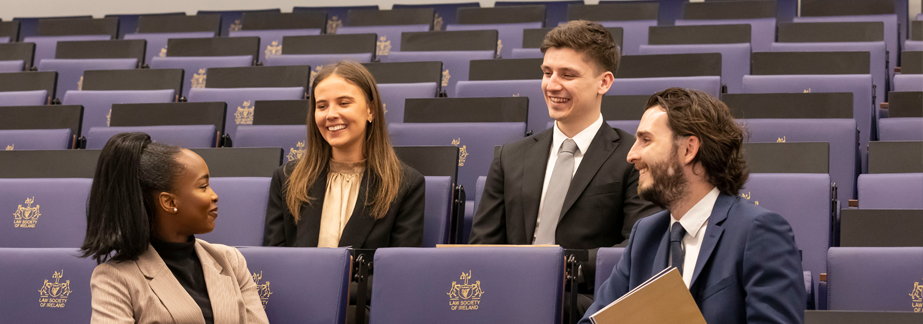Foreign university/ college graduate (Level 7 minimum)

This route to Becoming a Solicitor applies if you hold a qualification awarded by a recognised university/ college other than Ireland, Northern Ireland, England, Wales or Scotland. Your qualification must be equivalent to Level 7 or above on the Irish National Framework of Qualifications (INFQ).
Step 1: Preliminary Examination exemption application
You may apply for exemption from the Preliminary Examination. If you do not obtain this exemption, you will need to sit and pass the Preliminary Examination before you may sit the Final Examination - First Part (FE-1).
Step 2: Final examination - First Part (FE-1)
The Final Examination – First Part (FE-1) is the entrance examination to the Law Society of Ireland's Professional Practice Course (PPC) for training to become a solicitor.
Step 3: Training Contract
After completing the FE-1, you will need to find a solicitor to train you and enter into a Training Contract.
Step 4: PPC
The Professional Practice Course (PPC) at the Law Society of Ireland is designed to prepare you for work as a solicitor. It is available as an in-person full-time course or a part-time hybrid course.
Step 5: In-office training
Upon completing the Professional Practice Course (PPC) trainee solicitors are required to complete two years of in-office training.
Step 6: Admission to the Roll of Solicitors
When you have successfully completed your PPC examinations and your in-office training you may apply to have your name entered on the Roll of Solicitors.
Step 7: Practising Certificate
It is the statutory responsibility of each solicitor to ensure that they have a Practising Certificate (PC) in force before providing legal services of any kind whatsoever. After admission to the Roll of Solicitors, you can apply for your PC.
